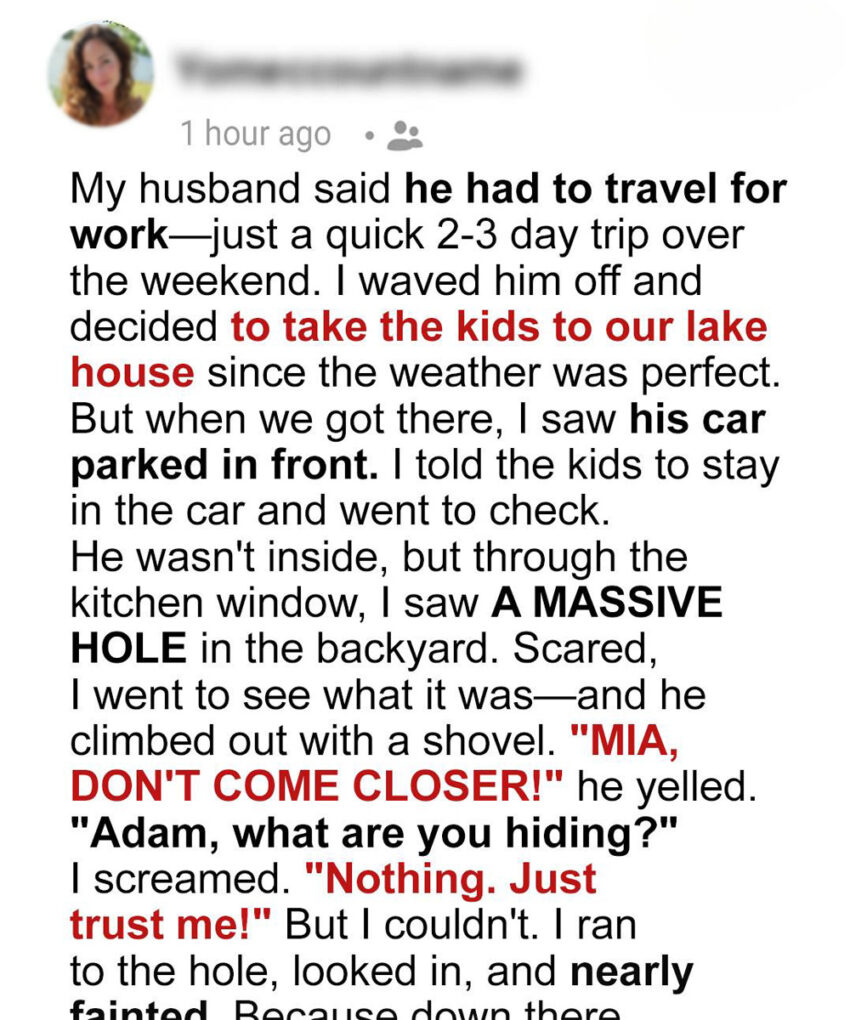He told me it was just a quick work trip—two or three days at most—so I packed up the kids for a weekend
at the lake house. But when we pulled into the driveway, his car was already there. My stomach sank. Inside, the house was quiet, too quiet, until I caught sight of him outside—shirt clinging with sweat, jeans streaked with mud, climbing out of a half-dug pit with a shovel on his shoulder. In the hole lay a safe, old and rusted, like a secret trying to breathe.
I demanded answers, but his voice cracked as he insisted I “trust him.” He said it was his grandfather’s, that he’d found a map in an old journal and thought he could surprise me. Instead, he’d lied about Omaha to go treasure hunting. When we finally pried the safe open, cash spilled out in bundles, along with velvet pouches, old photographs, and a letter in his grandfather’s blunt handwriting: This money came at a price. Don’t use it unless you’re desperate. Some people might still come looking.
The words turned our discovery into a curse. Adam admitted he was drowning in debt and wanted to fix it without me knowing. I wanted to scream, but the fear of what the money meant weighed heavier than the anger. We locked the safe away, called the police, and eventually surrendered it as evidence. For days, a black SUV lingered near our house, and detectives came with words like “ongoing investigation.” We cut expenses, picked up extra work, and swore to each other that shortcuts weren’t worth the stain. Forgiveness came slowly—one honest conversation, one shared sacrifice at a time.
